Prasanna D Zore
Failure and rejection are part of life. But they can be surmounted by perseverance and pursuit. 33-year-old scientist-turned-equity analyst-turned-author-turned Bihari bureaucrat Yateen Kumar Suman's life best exemplifies how to handle and overcome rejection.
Till Class XII, Yateen Kumar Suman never faced academic rejection or failure. In fact he passed CBSE plus two exams as a district topper from Indore Public School, Indore, scoring an aggregate of 90 percent (94 percent in physics, chemistry and maths).
And then he faced a string of rejections and disappointments that accompany them: He couldn't get admission into top-deck IITs because of a low rank in IIT-JEE for which he appeared in 1998.
In 2004 Yateen, despite all his sincere efforts, couldn't qualify for the interview round of UPSC exam. Admittedly, this was a huge setback and also a turning point in his life.
More recently, in March this year, six out of ten publishers rejected the story (two accepted and two were undecided) he took to them so that his labour of love could see the light of the day.
Despite rejections at various crucial points in his career, the feisty 33-year-old Bihari from Patna always knew he could do better in his life. And he did.
After getting a low rank at IIT-JEE he didn't turn despondent. Neither did he sulk and fritter away his time because he couldn't get admissions into say an IIT Bombay or IIT Madras. Instead he got admitted to the Indian School of Mines (IMS), Dhanbad, where he worked hard and earned a gold medal in electronics engineering, topping his batch in 2002.
In between his engineering course Yateen also got a paper Two-dimensional modelling of a sub 0.25 micron MOSFET (metal oxide semiconductor field-effect transistor)published in the Institute of Electrical and Electronics Engineers (IEEE), the most prestigious organisaton in the world for engineers.
But his failure in not getting a call for the interview round in UPSC exam in 2004 was a shocker for Yateen.
"IAS failure was difficult to absorb," says he during the course of the interview. "I knew that at worst, I might get a low rank in that exam, but my failure to not qualify was really shocking," he emphasises to illustrate how heartbroken he was when he couldn't make it.
While he didn't write UPSC again, in 2010 he cracked the Bihar Public Service Commission exam with flying colours and is today working as a commercial tax officer (sales tax officer), nabbing tax evaders and helping fill the coffers of his home state.
As for the rejection from six publishers including big names like Rupa and Jaico, he says he was confident of his manuscript getting published one day.
"Being a first-time author it was even more difficult to cope with so many rejections," Yateen says recollecting his days as a struggler. "But I kept pursuing," he adds.
His pursuits bore fruit in October this year when Leadstart Corporation published his first book, Love in a Wooden Box. In close to two months now it has already sold 500 copies.
You poke him: Do you think it will turn out to be a bestseller? "I won't say it is a bestseller yet. It is doing well," Yateen replies with a chuckle.
To add one more feather to his cap, Yateen is currently pursuing distance-learning diploma in economics from London School of Economics.
In this interview with Prasanna D Zore, Yateen speaks extensively about his rejections, how he overcame them, his maiden book, lessons he learnt from his career that includes four years at UBS India as an equity research analyst (that's another interesting story) and why he is not regretting being part of Bihar's bureaucracy earning just Rs four lakh per annum after sacrificing his UBS job that earned him Rs 13 lakh per annum.
'There is no substitute to your perseverance and pursuit'
Image: Yateen Kumar Suman outside his office in Darbhanga, BiharHow did you juggle between your job at UBS and Love in the Wooden Box?
I am an avid reader of fiction. I began writing this book in December 2009 when I was with UBS. Somehow I could find time in the evenings and weekends to write the book. I finished the book by February-March this year. From then on, I started sending manuscripts to various publishers including big names like Rupa and Jaico. It was quite disappointing to be rejected but then it happens with all first-time authors because people don't know you.
In May 2011, I was lucky to get Leadstart Corporation to agree to publish and eventually we signed the agreement. Out of ten publishers six rejected, two accepted and two couldn't decide. I decided to go with Leadstart Corporation because it is a reasonably big publishing house and I knew it would have a good marketing team.
You said six publishers rejected you. How did you cope with the disappointment being a first-time author?
(Laughs) At one point in time you fail to understand what's happening around you. They (the publishers) don't give you the reason for rejecting your story. Being a first-time author it was even more difficult to cope with so many rejections. But I kept pursuing. Somehow I was confident that I had written a good story and would succeed some day.
I had asked a few of my friends and colleagues to go through the book and they gave me very encouraging feedback. That is what kept me going despite the rejections. Yet so many publishers rejected me. Sometimes, you just have to be lucky. But in the end there is no substitute to your perseverance and pursuit.
Your first job...
Through the campus placement at ISM Dhanbad, I got an opportunity to work as a scientist with DRDO (Defence Research and Development Organisation), Delhi. I worked for a year in areas of nanotechnology, electronic automation and infrared. Later I quit DRDO because I wanted to prepare for UPSC civil services exams.
'I never let rejection hold me back in my other pursuits'
Image: Yateen Kumar Suman during his stint in UBS, LondonWhat happened next?
Unfortunately, I couldn't qualify for the interview and that was a big setback after IIT-JEE.
In the meantime I started as a sub-broker with Motilal Oswal. During this period I saw an opening with UBS and I applied, got through and worked with them for four years. For about 45 days I worked out of their London office after which I came back to Hyderabad and headed a team of ten people in equity research before I quit in September 2010.
While working with UBS my father asked me to fill state services form, which I did, and got through.
How did you cope with your rejection at not getting through to top IITs and UPSC?
Rejections always come with lot of personal disappointment especially for someone who has always been a topper throughout. When I was at ISM (Dhanbad) I got a paper titled Two-dimensional modelling of a sub 0.25 micron MOSFET published in IEEE. IEEE is the most prestigious organisation in the world with respect to engineers, and to get a paper published there during college itself was certainly a big achievement.
I never let rejection hold me back in my other pursuits, be it academics or sports.
That sort of helped me deal positively with all the rejections that I suffered. But then I don't want to deny that I was shocked after my rejection in the UPSC exam. Getting into ISM didn't shock me much because I was very unwell on the day of the exams, but still managed to get a JEE rank. I could have tried again but by then my career had moved ahead and I did not write JEE again.
But IAS failure was difficult to absorb and that is why I never wrote it again. I knew that at worst, I might get a low rank in that exams, but my failure to not qualify was really shocking.
However, it turned out to be a turning point of my life.
'At UBS, I used to often dine at five star hotels. As a tax officer now, I eat at roadside dhabas'
Image: Yateen Kumar Suman (extreme right) with his colleagues at UBS, HyderabadTurning point for the better...
I guess so (laughs). If I had become a bureaucrat in 2003-04 then I wouldn't have got a chance to see life in a different light, meet people in different countries and broaden my horizons.
Had it not been for that failure I wouldn't have got exposure to equity broking, equity research and investment banking, learning about global economies, taxation and finance.
In hindsight, I don't regret not appearing for the UPSC exam again. In fact my experience in the corporate world has helped me learn so many things that I am finding relevant today in my present job especially with relation to finance, accounting and economics.
How is life being a Bihar Finance Service's tax officer?
It all looks lucrative from outside but there is a lot of hard work and sincerity involved. I can't compare it with the other jobs I did because it is just over a year into my job as a tax officer. If I have to compare it to my investment-banking job or if I compare it with the other jobs then there is a huge difference.
At UBS, I used to often dine at five star hotels and now as a tax officer, I eat at roadside dhabas (food stalls), travelling public transport and passenger trains instead of taking flights, checking out tax evaders in the middle of a highway at midnight.
I am a part of the Bihar Finance Service and work as a Commercial Taxes Officer. I am supposed to administer the VAT Act of Bihar, Electricity Duty Act, Luxury Tax, CST Act, Entry Tax, Professional Tax and Entertainment Tax Act. We are mandated by the government to look into the implementation of these acts in public interest.
As an Indian citizen and native of Bihar I had always wanted to do my bit for my home state. Right since my childhood days I was not living in Bihar. But the will to doing something for the state has driven me for long. A lot of people tell me that I have chosen a wrong career and that I should go back to the corporate world because it is more challenging.
But I have this instinct, this passion or whatever you might call it do something for my home state because at the end of the day we are all guided by our own convictions and philosophies in life. I believe in contributing whatever little I could do for the society or for people of this country.
I am not a revolutionary, but I am here for whatever I can change and contribute through my limited experience and skill, and I will continue doing it irrespective of the outcome.
When you actually nab tax evaders and know that you have done your job with honesty and dedication, when you know you are contributing towards the prosperity and growth of your state and through that your country you feel good. There is a personal satisfaction associated with it. I have had my share of satisfactions working as a commercial tax officer of Bihar cadre, and I only hope that I can continue to add more value with time.
'Every day brings with it a new set of challenges'
Image: A highway in BiharWhat excites you the most being a state-level tax officer in Bihar? How does your typical day begin and end?
As I mentioned earlier, the fact that I am working for my home state, for the people of this state and trying to contribute positively through my expanded scope as compared to my previous job excites me quite a lot. Meeting senior bureaucrats, ministers of state government, interacting with dealers, junior staff, and colleagues and discussing issues of relevance are some of the things that were not part of my job earlier.
When you are out of the system, we tend to be very critical of it. But once you are part of it, you will realise that there is an urge by government servants to deliver the best within limited support and resources at his or her disposal.
A day that begins with trying to sort out urgent issues and assessing shortfall in tax collection can end sometimes in going for tax drives or surveys etc. Every day is a different experience, and I would be hard pressed to say that two days are the same.
Every day brings with it a new set of challenges and with it new set of opportunities to learn and do what is best for your job.
Your last job before joining Bihar Finance Services was with UBS. What kind of salary did you sacrifice to serve your home state?
I don't know if I am supposed to disclose this or not. But at UBS I got close to Rs 13 lakh (Rs 1.3 million) per annum, and here as a tax officer I earn less than Rs 35,000 per month or Rs 4 lakh per annum.
'There is life beyond investment banking and corporate careers'
Image: UBS office in HyderabadDon't you miss your high life?
(Laughs) When I got my salary for the first month from the government of Bihar I was like... what has happened to me, shocking...? But now I have started realising that though I earn less I am with my family, with my people and I am contributing my bit to the state where I was born.
People are appreciating my effort, there is lot of recognition. The scope for doing something is very large here and everything that we do has a direct bearing on tax administration within the state.
What I have realised is there is life beyond investment banking and corporate careers. I am not trying to pass a value judgment as to what is good and what is bad. I am only saying is that everybody has to be driven in life by her/his own convictions and philosophy. It is better to do that than regret your decisions after turning 40 or 50.
So, if I think that working for Bihar is part of my philosophy and this is how I can contribute to my home state, then nothing like it. It may not be the best way but it is definitely some way of doing it.
It is better than what I was doing earlier and this does not mean that I regret being part of an investment bank doing equity research work. That experience gave me tremendous learning and exposure and obviously now I can implement those learning for the betterment of my home state.
'Be focussed, determined towards your goals. You'll achieve some, lose some, but never regret any'
Image: Cover of Love in a Wooden BoxCareer lessons...
One of my biggest career lessons has been that we should always be sincere in whatever we do, and keep an open mind for learning. There should be an urge to keep improving your skillset so that we are adept in what we do. And most importantly a thinking mind should help us adopt best practices through our previous job experiences or otherwise into our incumbent one.
Interestingly, sooner or later we always realise that there is no substitute for hard work. I still remember how I used to study in my school in Darjeeling using kerosene-lit lamps sometimes and wake up at 4 am in that bitter cold to prepare for exams. Even during my college days, besides being a gold medallist I also excelled in extracurricular activities and was awarded the University Blue in Cricket and Certificate of Honour in Chess. With all this, the common lesson was that be focussed, disciplined and determined towards your goals, you will achieve some and lose some, but will never regret any!
Finally, what is Love in the Wooden Box all about?
Basically, the book is inspired by my four years of engineering life at ISM (Dhanbad). Those four years, I think, were the best years of my life and the many things that I experienced there still remain close to my heart. In fact this book is dedicated to those four glorious years and to the state of Bihar. I also created a website www.yateenksuman.com with more details about the book.
It is a suspense thriller, a story about four friends, who come together amid the usual ragging-in-the-college drama and when they are in the third year there is a murder in the college. The investigators are trying to find out the mastermind and finally a terrorist organisation enters the plot. It covers intricate aspects of romance and one can realise how the story unfolds beautifully as it progresses. It tells us that love as a force can conquer even the biggest obstacle on earth.
Interestingly, through this novel I have tried to raise a lot of contemporary issues and a lot of feedback I am getting from my readers actually mention this. They have spoken about poverty, division of states, cybercrimes, terrorism and, of course, teenage love.
Readers, whose feedback I am getting, have liked the way I have narrated the story, and for some the suspense was outstanding. There has been a common feedback that the story is very engrossing and difficult to stop reading once started. I only hope that more and more people give in their feedback on my writing so that if I get an opportunity to write a second book, their feedback could definitely add value.

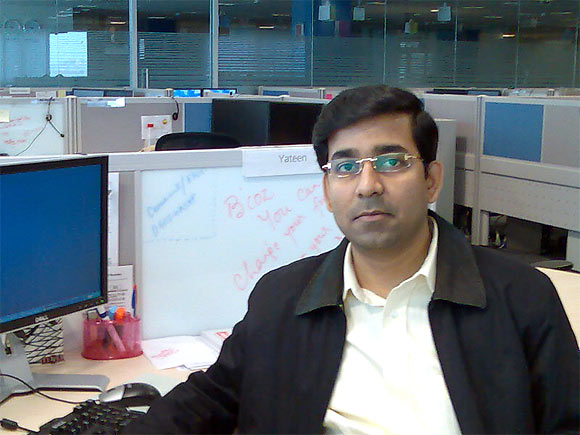
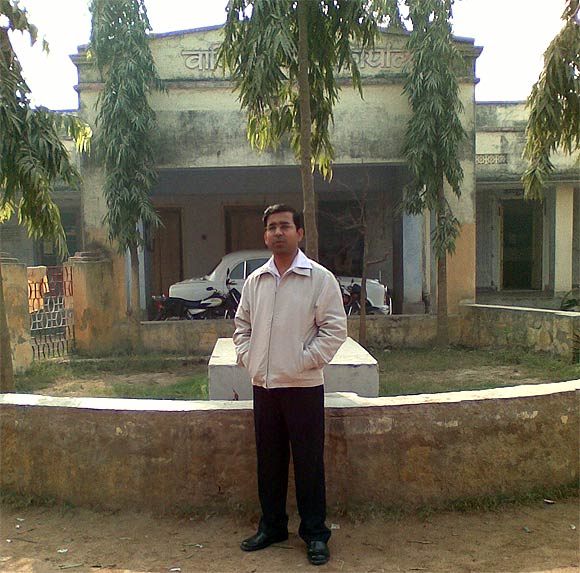
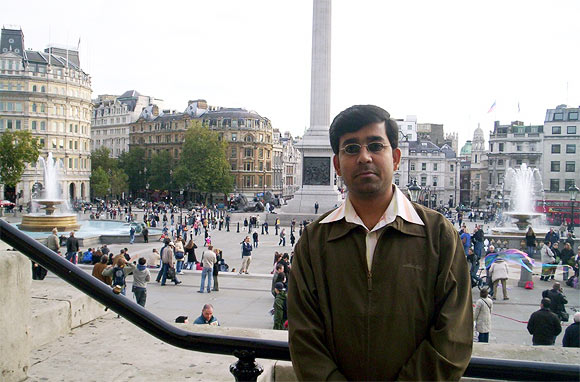
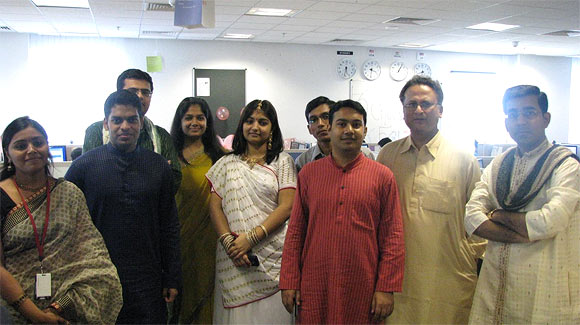


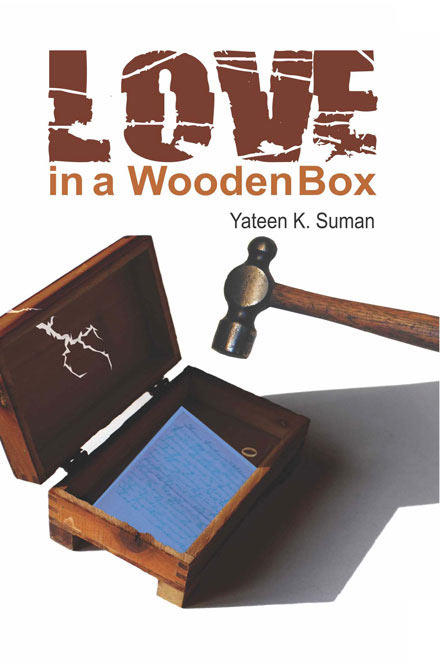
Comment
article